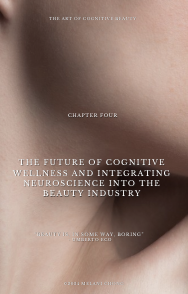Hotlist: Health Canada Updates CIH

Canadian Cosmetic Ingredients Hotlist (CIH)
Lab scientists at Analog/Sci have been reviewing the updates to Health Canada's Cosmetic Ingredient Hotlist to keep abreast for our Canadian company clients. Canadian cosmetic manufacturers have been provided notice that Health Canada will be updating the reviews of the cosmetic ingredients Hotlist. The Hotlist serves as an administrative tool that provides the regulatory statements about ingredients that may violate the FDA or Cosmetic Regulations (CR) guidelines. Some ingredients on the Hotlist may be permitted in cosmetic formulations if they are used in specific percentage amounts and the manufacturer strictly follows Good Manufacturing Processes.
The CIH is a science based report that is reviewed and updated periodically (i.e. when new scientific data becomes available). Health Canada can take actions at any time to enforce the FDA and CR requirements even if a material is not on the Hotlist. Evidence based data, advise, opinions, decisions and reviews of scientific journals are made by national and international regulatory governances and expert panel groups, to conclude on changes or updates to the Hotlist. The last update to the Hotlist was in December 2019.
Current shelved products could be impacted by the possible updates, and manufacturers will need to begin to think about the necessary changes to product formulations, distribution and sale.
Canada's Chemical Management Plan (CMP) shares information with the Canadian Environmental Act-1999 and will be reviewing the following additions
- Ethylhexyl Ethylhexanoate
- Azelaic acid
- Retinol and its esters
- Retinoic Acid, Polyhydroxic Acids (AHA)
- Eucalyptus Oil
- Peroxide
- p-Hydroxyanisole
Other materials that continue to be under review which are subject to regularly offered updates and are currently on the Canada Health Cosmetic Ingredient Hotlist are talc, benzophenone, boric acid, Malachite green, Solvent Violet 13 and chlorocresol.
The Hotlist, designed like other global regulatory guidelines, consist of 2 categories, Prohibited materials and Restricted materials.
Prohibited materials are not permitted to be present in cosmetic products sold in Canada. Restricted ingredients are permitted, only if the exact amount permitted by law, is used in the formulation and official documentation must be provided with detailed ingredient levels and methods used in manufacturing.
Also in MC2 BLOG

Welcome to The Future of Neuro Beauty
The understanding of Cognitive Beauty opens new possibilities for beauty treatments that go beyond surface-level aesthetics and delve into the underlying neurobiology of beauty and the diverse world of aesthetics.

Your Skin Is A Quantum Communicator
Your skin is a sensory force field, constantly receiving and emitting powerful signals. It’s how you interact with the world and how the world interacts with you.
Your skin is a quantum communicator—it picks up vibrations, temperature changes, even emotional energy from others - Melani Chong

The Skin - Brain Axis - How It works
Melani Chong Neuro Beauty Expert ::: The Skin-Brain Superhighway
Did you know your skin and brain have a hotline to each other? Yep, they're chatting 24/7 through a superhighway of nerves and biochemicals. Stress, mood, and even how well you sleep can affect your glow-up game.
Because understanding this connection gives you the power to take control of your skin's story. Managing stress, sleeping well, and using neurocosmetic ingredients can help keep both your mind and skin in harmony.

